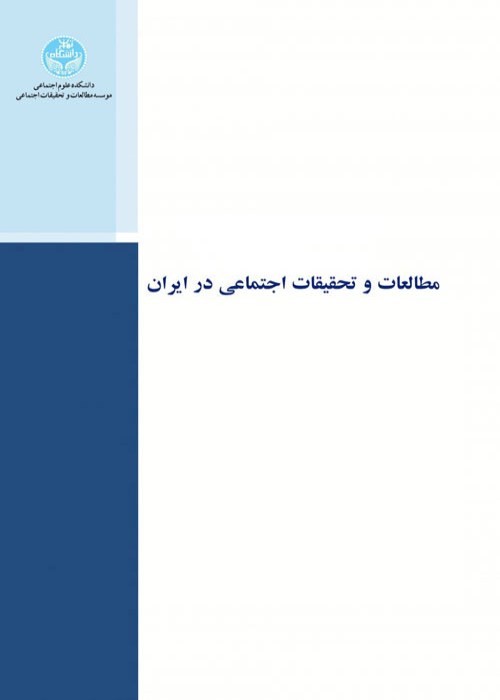Women’s Cultural Agency, Post Islamic Revolution: A Discourse Analysis on Islamic Feminists’ Demands in Iran
Author(s):
Article Type:
Research/Original Article (دارای رتبه معتبر)
Abstract:
Introduction
The historic revival of the political Islam late 1970s and the establishment of the Islamic Republic in Iran as an unprecedented form of government has attracted many international scholars for four decades. From the very beginning of this socio-political transition in Iran, the status of women and their rights and empowerment have been of high priority under an Islamic government. The Islamic Republic has become an enabling force to bring an exceptional opportunity for Iranian women to acknowledge their position in individual and social capacities. Simultaneously, the definition of womanhood and women’s social mission and role taking has changed a lot based on new Islamic cultural values and laws in the Islamic Republic. In parallel, some new and different interpretations came to surface in particular during Mohammad Khatami’s presidency and under the title of dynamic jurisprudence was giving way to Islamic feminism. Islamic feminists claim to re-interpret Quran and the Prophet’s Sunnah in terms of modern gender equality and women’s socio-political participation. However, “Islamic” and “feminism” sounds paradoxical to many critics, “Islamic feminism” is a named phenomenon and a theorized body of knowledge that got its climax in 1990s as it sounds to remain significant in the 21st century. Method
The present study is an attempt to seize the focal discursive nodes of Islamic feminism regarding both academic and journalistic literature with acknowledging the fact that many of the current Islamic feminists are not even located in Iran as they produce and publish such knowledge in European and American universities. The present study, thus, addresses various academic and journalistic publications to unveil the focal nodes that constructs the discourse of Islamic feminism in Iran. It has covered a vast literature including 40 articles, book chapters and books in the Islamic feminism genre to unveil its discursive construction in Iran. It employs Laclau and Mouffe’s approach to critical discourse analysis: it finds the most frequent concepts that imply the re-reading of Islam in terms of gender equality and women’s rights and empowerment. Results and discussion
The study indicates that Islamic feminism that has developed in response to the political Islam discursively focuses on four major themes, including a) criticizing the Islamic Republic for reductionism in women’s identity into the domestic and communal roles, b) emphasis on human dignity to achieve the legal equality, c) demand on halting gender-based discriminatory legislature, and finally, d) fostering women’s participation in civil society. Conclusion
To provide a compatible version of Islam with women’s modern needs and wishes is a dilemma with which many Muslim scholars and activists are faced. Islamic feminists in Iran challenge the pervasive narrative of womanhood post Revolution since they believe it has undermined women’s position as individuals and reinforced men’s power and control over women. Studies such as the present one paves the way for a vigorous dialogue between Islam and modernity in the field of gender. It draws the complex status of modern Muslim women in border thinking between Islam and modernity.Keywords:
Language:
Persian
Published:
Quarterly of Social Studies and Research in Iran, Volume:9 Issue: 4, 2020
Pages:
931 to 966
magiran.com/p2209772
دانلود و مطالعه متن این مقاله با یکی از روشهای زیر امکان پذیر است:
اشتراک شخصی
با عضویت و پرداخت آنلاین حق اشتراک یکساله به مبلغ 1,390,000ريال میتوانید 70 عنوان مطلب دانلود کنید!
اشتراک سازمانی
به کتابخانه دانشگاه یا محل کار خود پیشنهاد کنید تا اشتراک سازمانی این پایگاه را برای دسترسی نامحدود همه کاربران به متن مطالب تهیه نمایند!
توجه!
- حق عضویت دریافتی صرف حمایت از نشریات عضو و نگهداری، تکمیل و توسعه مگیران میشود.
- پرداخت حق اشتراک و دانلود مقالات اجازه بازنشر آن در سایر رسانههای چاپی و دیجیتال را به کاربر نمیدهد.
In order to view content subscription is required
Personal subscription
Subscribe magiran.com for 70 € euros via PayPal and download 70 articles during a year.
Organization subscription
Please contact us to subscribe your university or library for unlimited access!


